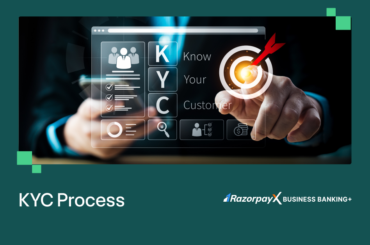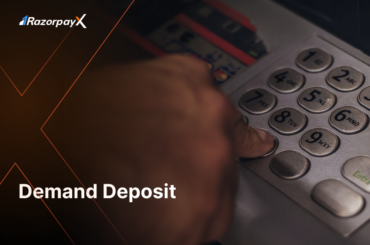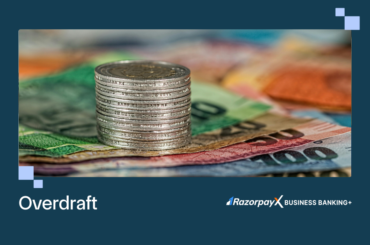An MSME business loan is a financial product offered by banks and other financial institutions in India to help small and medium-sized businesses finance their operations and growth. These loans are specifically designed to cater to the unique financing needs of MSMEs, which play a crucial role in driving the Indian economy.
MSME business loans can be used for various purposes, such as purchasing new machinery, expanding operations, buying raw materials, or meeting working capital requirements. These loans are typically unsecured, meaning that the borrower does not have to provide collateral or security to get the loan.
The loan amount, interest rates, and repayment terms for MSME business loans vary depending on the lender, the borrower’s creditworthiness, and the purpose of the loan. The Government of India has also launched several schemes to provide financial assistance to MSMEs, such as the Credit Guarantee Scheme for Micro and Small Enterprises, which provides collateral-free credit to eligible MSMEs.
How to qualify for an MSME business loan?
To qualify for an MSME business loan in India, there are certain requirements and eligibility criteria that must be met. Here are some of the key factors to consider:
Documents required to qualify for an MSME business Loan in India
- Business registration documents: Depending on the legal structure of your business, you will need to provide the relevant registration documents, such as a Partnership Deed, Memorandum of Association (MOA) and Articles of Association (AOA), Certificate of Incorporation, and Business Registration Certificate.
- KYC documents: You will need to provide KYC (Know Your Customer) documents for all the directors or partners in your business. These include PAN card, Aadhaar card, Passport, Voter ID, and Driving License.
- Bank statements: You will need to provide bank statements for the past 6-12 months for your business to demonstrate your financial stability and repayment capacity.
- Income tax returns: You will need to submit income tax returns for the past 2-3 years to show your business’s financial performance and tax compliance.
- Business plan: You may be required to submit a detailed business plan outlining your growth strategies, cash flow projections, and how you plan to utilise the loan funds.
- Trade references: You may need to provide trade references from your customers or suppliers to demonstrate your business’s credibility and reputation.
- Other documents: Depending on the lender’s policies and the purpose of the loan, you may also need to submit additional documents such as project reports, sales invoices, and purchase orders.
It’s important to note that the specific documentation requirements may vary depending on the lender and the loan amount you are seeking. It’s recommended to check with the lender for a complete list of documents required to apply for an MSME business loan.
Eligibility Criteria of an MSME Business Loan

- Business registration: To apply for an MSME loan, your business must be registered as a legal entity. This can be done through various forms, such as a sole proprietorship, partnership firm, LLP (Limited Liability Partnership) or a company.
- Business vintage: Your business must have a minimum vintage of 6 months to be eligible for an MSME loan. However, some lenders may require a longer vintage, depending on their policies.
- Credit score: A good credit score is crucial to qualify for an MSME loan. A score of 750 or above is generally considered a good score. Lenders typically look at your credit score to assess your creditworthiness and ability to repay the loan.
- Financial statements: To apply for an MSME loan, you will need to submit your financial statements, including your balance sheet, profit and loss statement, and cash flow statement for the past 2-3 years.
- Business turnover: Your business must have a minimum annual turnover to qualify for an MSME loan. The turnover requirement varies depending on the lender, but typically ranges from Rs. 25 lakh to Rs. 50 crore.
- Loan purpose: You must have a clear purpose for the loan, such as expanding your business, purchasing new machinery, or working capital needs. The lender will evaluate your loan application based on the purpose of the loan and your ability to repay it.
- Collateral: Depending on the loan amount and the lender’s policies, you may need to provide collateral or security to qualify for an MSME loan. Collateral can be in the form of property, machinery, or any other assets that can be sold to recover the loan amount in case of default.
Related Read – Budget 2024: Top 7 Highlights For MSMEs
Introducing Razorpay Line of Credit: A short-term loan for short-term cash needs
Razorpay Line of Credit has the potential to revolutionise SME business loans and disbursement procedures, making funding accessible to a broad range of small and micro-enterprises without requiring assets or a high CIBIL score.
The platform also offers a significantly higher credit limit of up to INR 25 lakhs for eligible businesses that meet the necessary terms and conditions. Importantly, interest is charged only on the withdrawn amount, not on the entire sanctioned amount.
As a result, businesses can benefit from this credit facility in various ways. The platform’s website features an EMI calculator that enables businesses to estimate their monthly repayment outgo if they opt for the Line of Credit facility.
So what are you waiting for? Apply today and enjoy uninterrupted business growth.
Related Read: What is an MSME Certificate & How can you download an MSME or Udyam Certificate Online?





